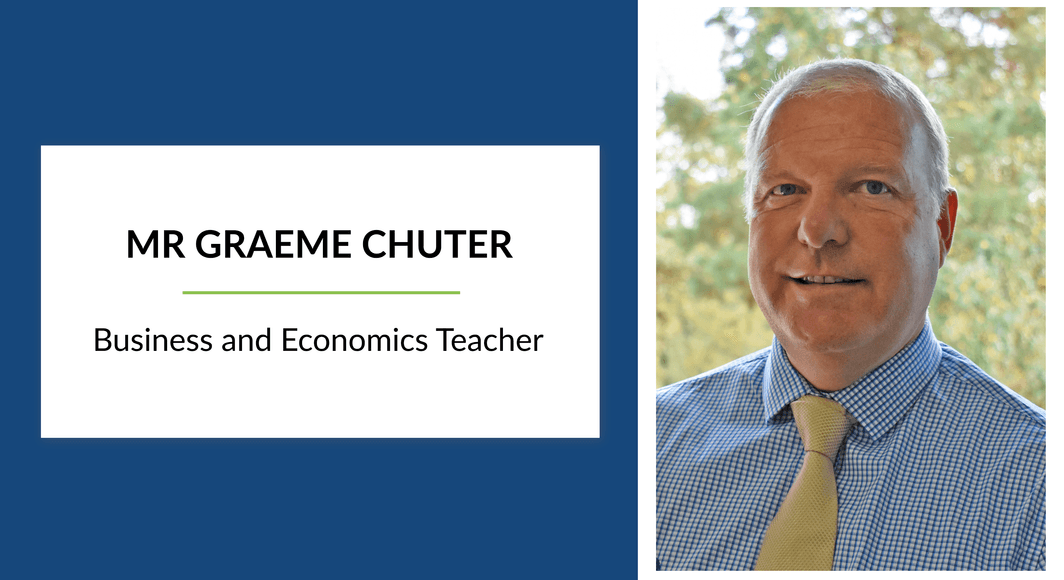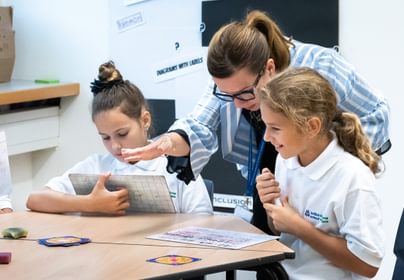For our final Teacher Feature this block, we shine the spotlight on Mr Chuter, our brilliant Business and Economics teacher.
Mr Chuter joined us this academic year with a wealth of commercial, training and teaching experience, enabling him to bring academic concepts alongside real-life business applications to the classroom. Outside of school, Mr Chuter is keen to keep on top of current affairs in the wider political, social, and economic environment.
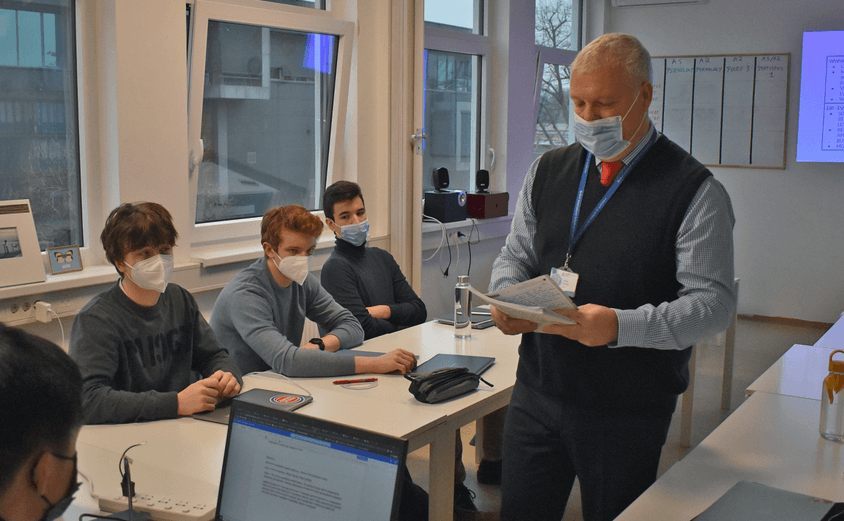
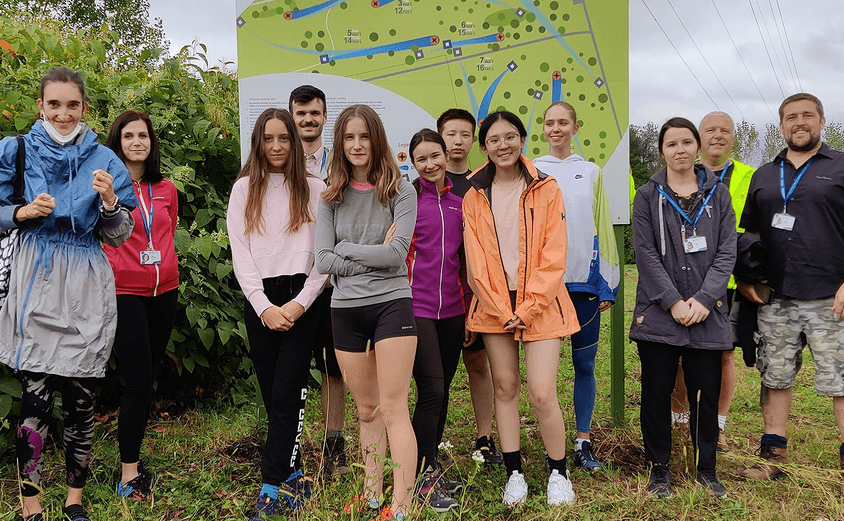
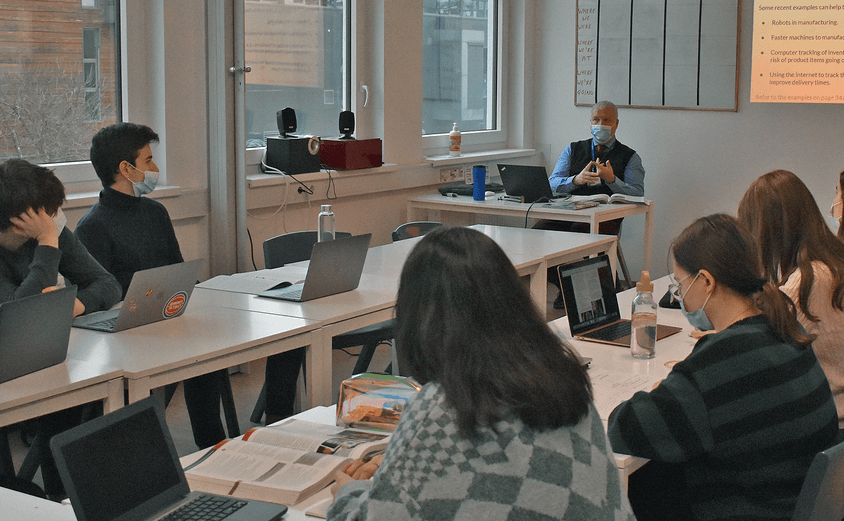

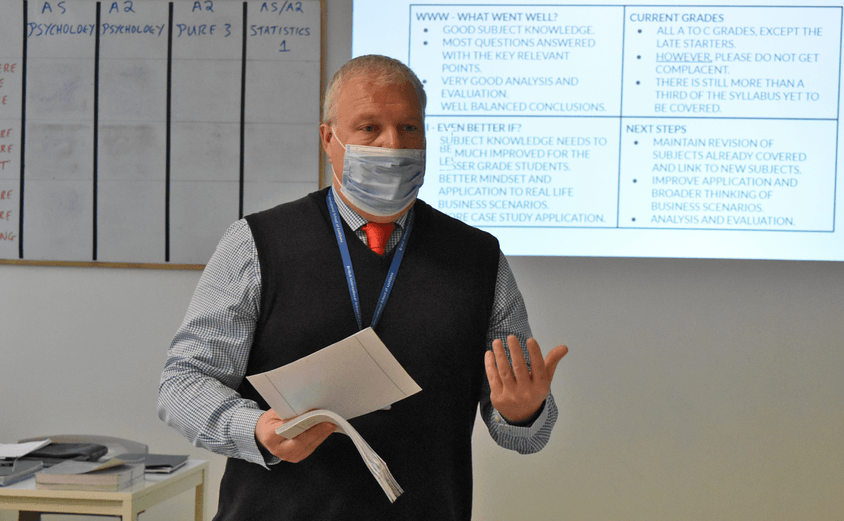
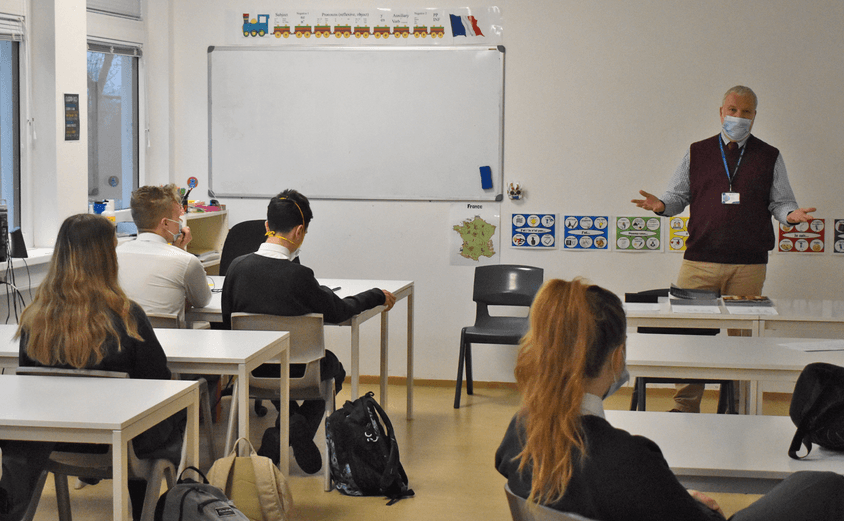
Briefly describe your journey as a teacher.
I have enjoyed a varied career path over the past thirty years or so, which has combined teaching and on-the-job training programmes with direct hands-on experience in sales, marketing, market research, human resource management, and business consultancy. I have worked in a number of different commercial sectors including education, financial services, retail, travel & tourism, hospitality, and management consultancy, including running my own business for several years.
Why did you decide to specialise in Business and Economics?
This was the perfect fit, I guess? My education and career path has led me to specialise in teaching these vocational subjects, which has been enhanced by my broad range of business experience. I would say that this gives me an advantage in teaching theoretical concepts and applying these to practical business and economics scenarios. It all started back in Sixth Form when I opted to take Business Studies at A Level. From there, I went on to continue my studies at university, where I obtained a BA (Hons) in Business Studies and a CIM (Chartered Institute of Marketing) postgraduate diploma in International Marketing.
What makes BISL such a unique place to work?
For me, it has to be the smaller class sizes and the opportunity to provide a more customised approach, in special consideration of the differing learning styles and challenges of individual students. Since I am teaching predominantly sixth-formers, I also feel that it is important to prepare the students as much as possible for their future studies at university, encouraging them to become more responsible and independent with their learning and self-discipline. In a nutshell, helping them to be better prepared for the outside world after school.
How would you describe a typical day at BISL?
There is no such thing as a typical day, I would say. Different challenges are likely to crop up from one day to the next. However, my days tend to begin by getting into school early to prepare for the day ahead. Morning registration is a good opportunity to welcome the students and to set the scene for the day ahead. And of course, the rest of the day will feature the usual mix of timetabled lessons, other school duties, meetings, and plenty of time set aside for lesson planning and marking students’ work.
Why is the experience of an international education important for a student?
I would say that it creates a really positive and inspirational environment which helps the students in their personal development and their appreciation of a world where globalisation has become a key element of our everyday lives. It goes without saying of course that gaining qualifications that are internationally recognised will provide our students with a considerable competitive advantage in the future, as they move on to higher education and the next stages of their career paths.
More from our Teacher Feature Series
- 15.09.2021 - Miss Isla Gillespie
- 29.09.2021 - Miss Laura Hawkins
- 13.10.2021 - Mr Andrew Malden
- 26.10.2021 - Mr Simon Astbury
- 10.11.2021 - Miss Lauren Thomas
- 24.11.2021 - Miss Shone Tatil
- 08.12.2021 - Mr Dan MacNeill
- 05.01.2022 - Mr Zen Fordham
- 19.02.2022 - Miss Rachel Burtrand

